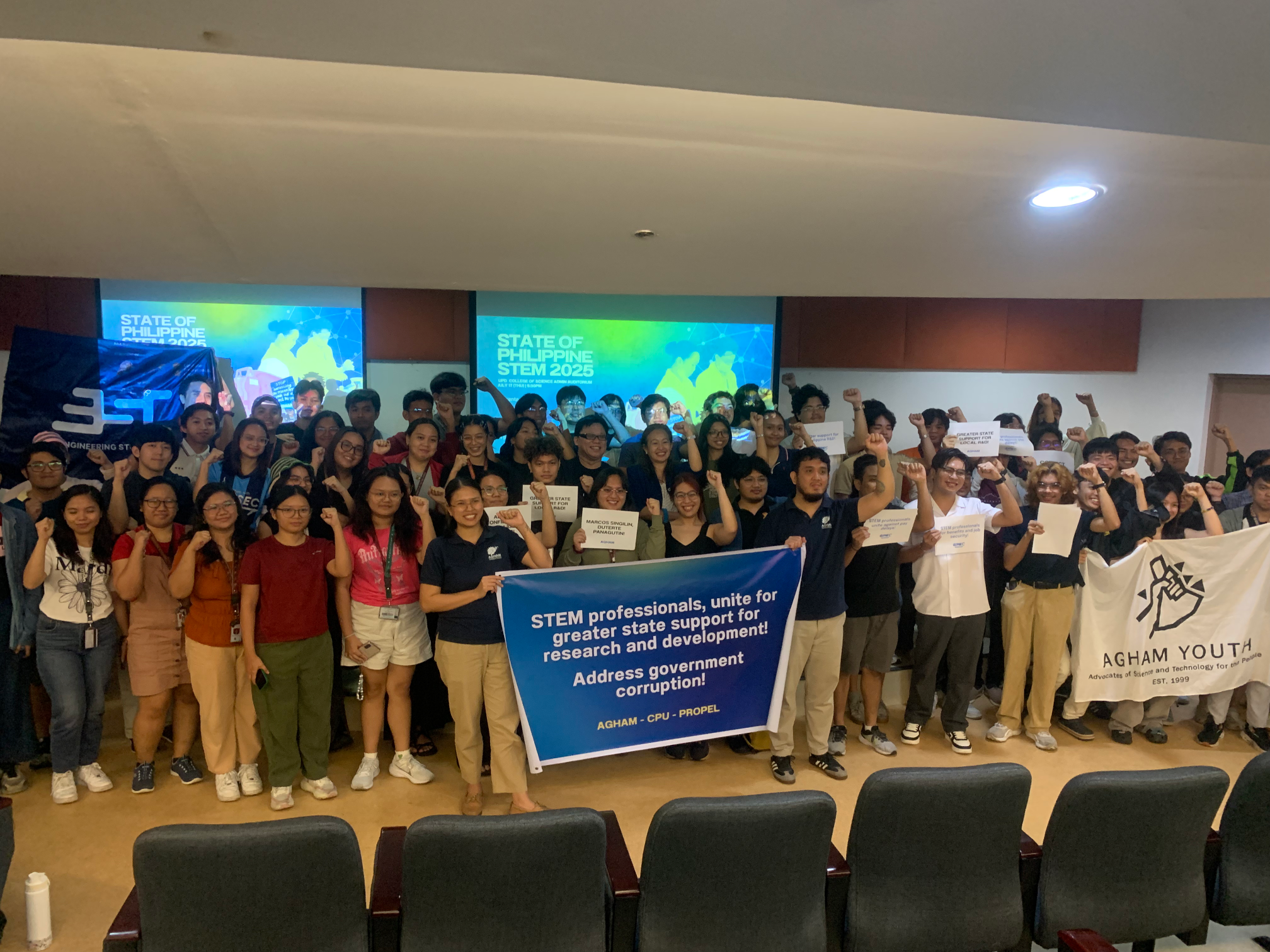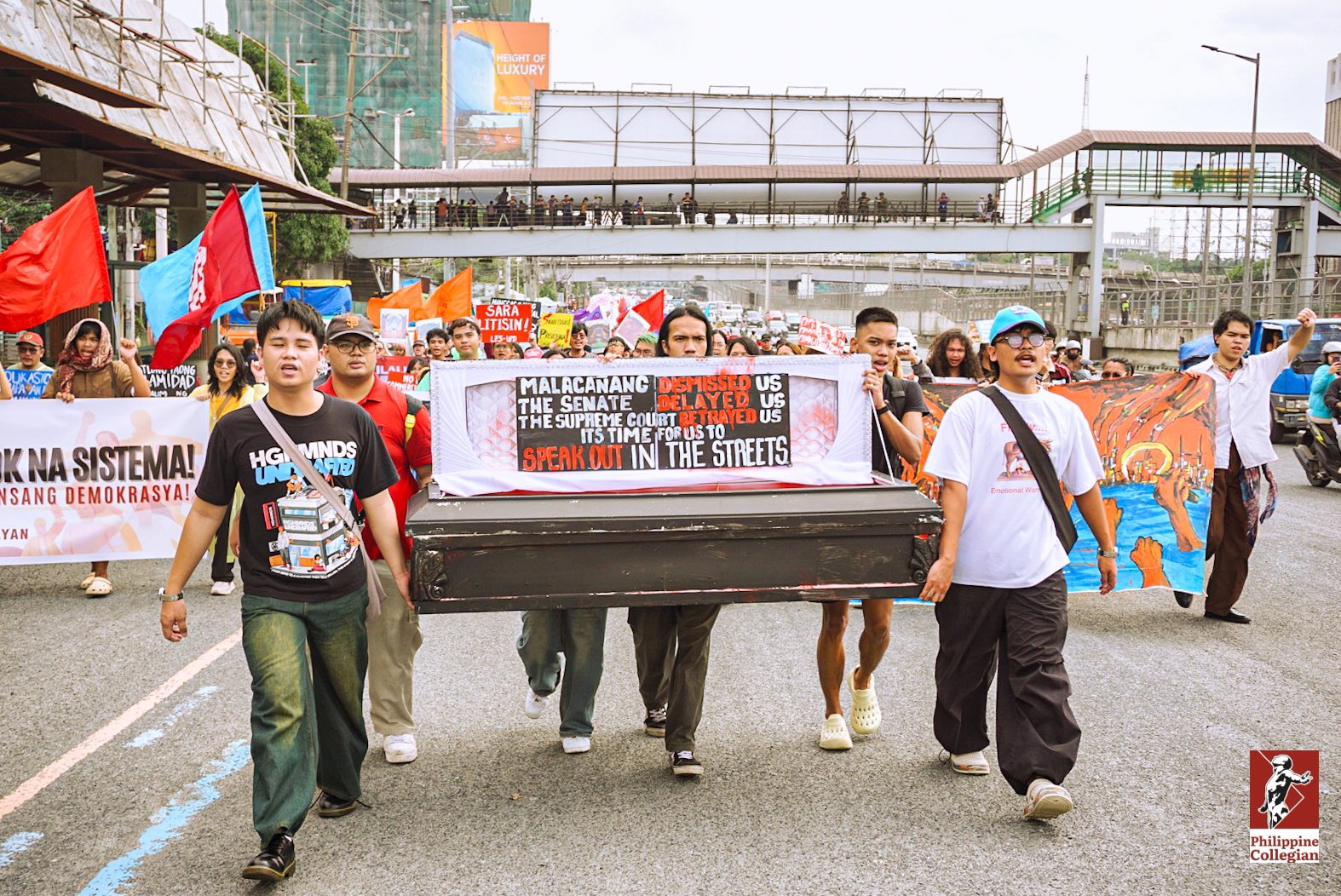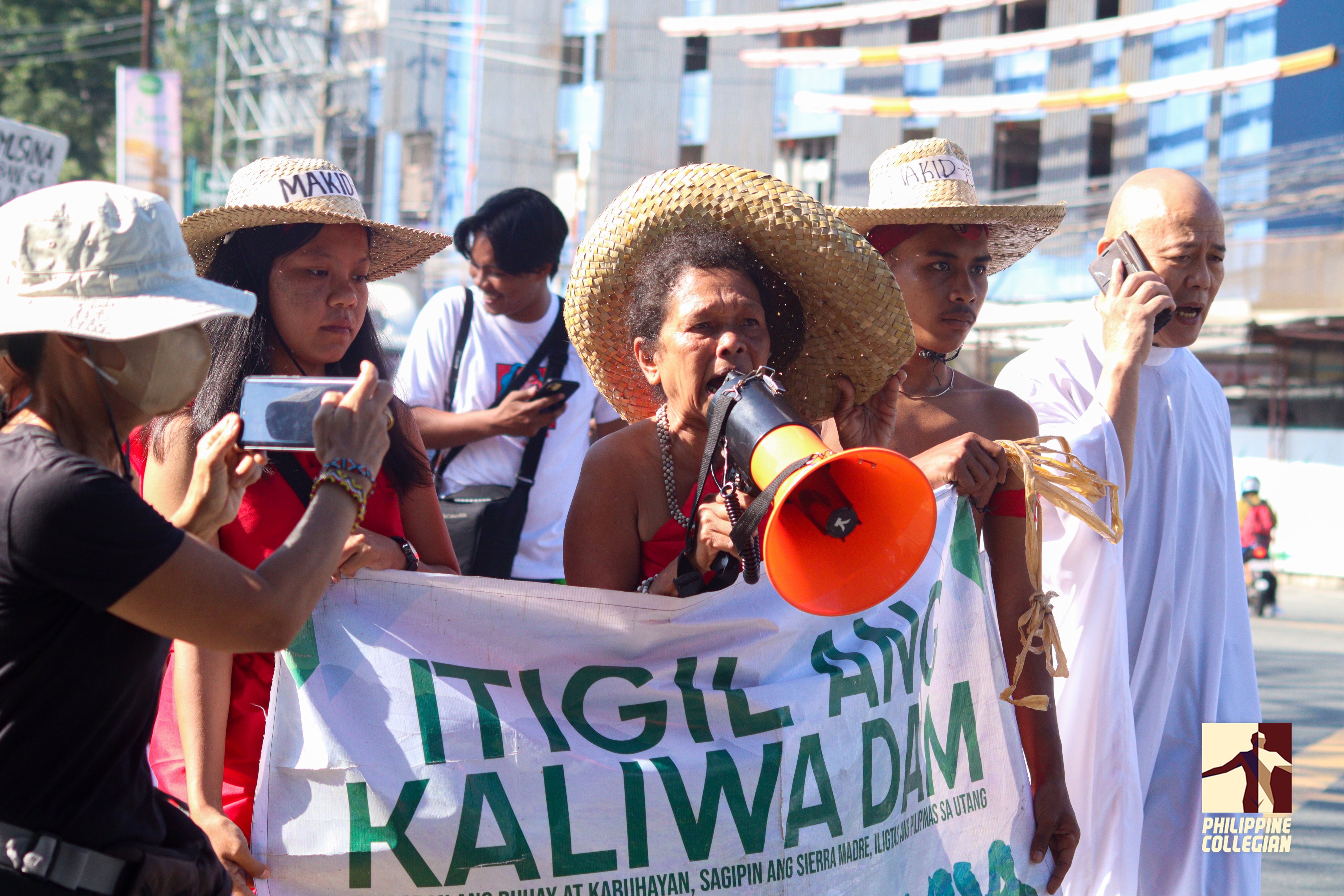As President Ferdinand Marcos Jr.’s administration enters its fourth year, its backward policymaking has left the nation’s science and technology sector in a “bleak” state, scientist groups said in the State of Philippine STEM forum held Thursday at the UP Diliman College of Science Admin Auditorium.
With thousands of Filipinos being displaced by flooding and landslides this rainy season, groups highlighted how only P28.68 billion of the P49.25-billion budget requested by the Department of Science and Technology was approved this year.
Much of the proposed budget was meant to be allocated for disaster risk reduction and management, critical for the Philippines, which had the highest disaster risk in the world last year.
The lower budget has led, for instance, to a 44% budget cut to Dynaslope, a government project which monitors and provides early warnings for landslides. Its team wrote an open letter in December 2024 asking the president to reverse the cut, citing that it threatened the removal of a third of its personnel and would stall life-saving efforts in 52 at-risk communities.
Groups also belied the president’s claims that the administration would establish a “culture of innovation” through research and development. Although the Philippines ranked 53rd among 133 economies in the 2024 Global Innovation Index, this ranking may have been inflated by the country’s overreliance on high-tech imports and exports.
“This doesn’t necessarily point to innovation because it’s mostly manufacturing and assembly, and not R&D (research and development). For high-tech imports naman, instead of making our own local technology, we’re reliant on importing technology that we need to further innovate,” explained Bea Panlaqui of the Advocates of Science and Technology for the People - Diliman.
In reality, the country lagged behind on other metrics, ranking 125th on scientific and technical articles, 94th on number of patents, and 86th on number of researchers.
These metrics are in part due to poor working conditions, a lack of benefits and tenure, and heavy administrative workloads faced by contractual STEM researchers.
“Naranasan ko na four months delayed yung sahod, and kahit ngayon mag-tu-two months na rin delayed yung sahod ko. May iba umabot na eight months,” said Teodore Comentan, researcher at the National Institute of Molecular Biology and Biotechnology.
Even in the field of information and communication technology, which tends to have higher-than-average wages, some workers still earn less than the P1,200 family living wage necessary to support a household of five people, as found by the Computer Professionals’ Union in its informal survey.
These factors all contribute to brain drain as professionals seek better opportunities abroad.
The government has attempted to reverse this through the Balik Scientist Act, which provides monetary incentives, insurance, and benefits to Filipino professionals abroad who return to the Philippines to undertake scientific work.
But the law has never met its yearly targets since its inception in 2018. From 2020 to 2023, only around a third of the target number of Balik Scientists returned to conduct work on a short to long-term basis, according to a congressional report. For scientists who do stay in the country, their findings often get ignored in policymaking, said Panlaqui.
For instance, calls from IT professionals and advocates to junk the SIM Registration Law, which they deem a threat to citizens’ data privacy, have long been ignored. Despite over two years’ implementation of the law, scams and cybercrimes continue to proliferate in the country.
Attempted amendments to the law, like required in-person registration, would not work as they still fail to address the root causes of cybercrimes like data breaches, explained Ian Aragoza of the Computer Professionals’ Union.
Many of these breaches affect the government itself, with the National Intelligence Coordinating Agency reporting in April that it was monitoring 234 government data breaches.
Meanwhile, the government has also pushed for the privatization of basic services like water, electricity, and public transportation, which has driven up prices often without increasing the quality of services, Francis Quintana of Pro-People Engineers and Leaders said.
Community visits done by the group in San Jose del Monte, Bulacan revealed that many residents experienced poor water service under Villar-owned PrimeWater. Households reported their water having an oily sheen or faint odor, possibly caused by contamination from the public drainage line. Others reported costly water bills despite only air coming out of their faucets on multiple occasions.
Amid these challenges faced by the science and technology sectors, groups affirmed the need to build a critical mass of scientists to help communities solve their issues.
They also called for increased investment in science and research, and development of local industries through national industrialization. This would not only make the country less dependent on technological imports and exports, but also create more local work opportunities for STEM professionals.
“If we actually organize and move together as a group and call for action, we have a better chance of making what we want a reality. Who’s gonna fight for the scientists if not for the scientists themselves?” said Panlaqui. ●






